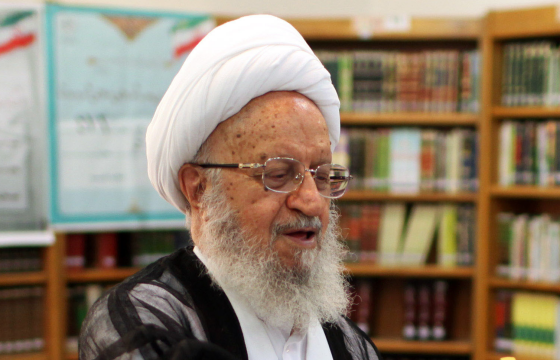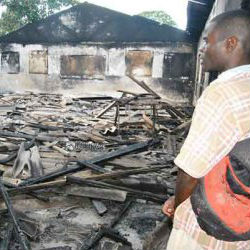Catholic bishops have called on the Government to hire chaplains in schools in an attempt to tackle a wave of student arson attacks in Kenya, which have seen over 120 secondary schools targeted since June.
"We have noted with concern that there seems to be evidence that most of [the] students involved in burning schools are vulnerable children, some coming from dysfunctional families, others are orphans," said Bishop Maurice Muhatia, chairman of the Kenyan Bishops’ Conference’s Commission for Education and Religious Education.
Suggesting that the Church implement a new parenting course for parents and guardians and “formation programmes” for children, Bishop Muhatia said this would require chaplaincy services in all schools.
The bishop’s comments came at the end of the conference of the Catholic School Principals Association-Kenya (CaSPA-K) in Nairobi last week. Over one thousand head teachers, education secretaries and religious education advisors from all the Catholic dioceses of Kenya attended the three-day conference.
The fires, largely targeting school dormitories, have seen the destruction of school supplies, personal belongings and forced students out of school. More than 150 students were charged with the destruction of property or conspiracy to start fires in courts during July. Teachers’ unions have demanded that schools are closed early in fear of further attacks.
Arson attacks on schools are not a new phenomenon in Kenya, but the escalating rate of fires is causing serious concern. The motive behind them remains unclear.
Education Cabinet Secretary Fred Matiang’i has attributed the slew of arson attacks to students who are angry that they can no longer access illegal examination papers in advance of their exams, following strict education reforms announced in May by Kenya’s Ministry of Education.
The changes, instigated by Matiang’i, were part of broader reforms aimed at curbing cheating in exams, largely by limiting contact between students and outsider groups who are said to send students exam answers via mobile phones and illegally obtained advance papers in exchange for cash.
The Education Cabinet Secretary said he had information from police and head teachers that since the new measures had been imposed the teachers who abet cheating had been unable to procure the illegal test papers after the government dismantled the cartels that used to distribute them.
“Students who have been arrested and are facing charges have told police that they were protesting because they had paid for the papers but they have not received them,” Dr Matiang’i told Kenya’s Daily Nation newspaper last week.
Head teachers of Catholic schools may have been referring to these same groups when they claimed last week, at the CaSPA-K conference, that their own investigations pointed to radicalised children being funded to torch school buildings by organised cartels seeking to disrupt secondary education in Kenya.
Bishop Muhatia added that the government should provide special training for head teachers in “intelligence gathering to build their capacity to tame radicalisation in schools".
Education Cabinet Secretary Matiang'i said the Kenyan government is working with faith based organisations in training head teachers to counter radicalisation in schools in response to the bishops’ concerns.
"We are working on a new scheme of service that would enable the government to post chaplains from mainstream churches in secondary schools from the next financial year," Matiang'i told news site, All Africa, on 19 August.
Fr Willybard Lagho, a priest in the Mombasa diocese and a former education secretary, told The Tablet that groups who benefited financially from the leaking of exam papers could be behind the arson attempts.
However, he added that it is too simplistic an approach to purely blame the cartels for the crisis. He said tension between teachers and students over the running of the schools has been building for some time. According to Lagho, schools receive funds from a variety of sources, yet this often ends up in the pockets of the few individuals running the schools. This discrepancy may have caused students, or other members of staff, to protest.
Lagho added that drug abuse is also a big problem in Kenyan schools.
Kenya’s Deputy President, William Ruto, has called for a collective approach to restore calm in schools.
“It is our collective responsibility to engage our young people in our schools so that they desist from activities that derail education or lead to destruction of property,” said Mr Ruto in July. He also asked religious leaders to play a leading role in helping to contain the unrest, saying they were best placed to educate students on good morals by instilling Christian values.
“It is time religious leaders took a leading role in making sure spiritual values guide students in decision-making in schools,” he added.
Photo©Twitter




 Loading ...
Loading ...